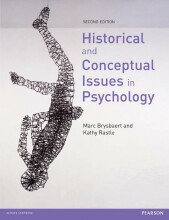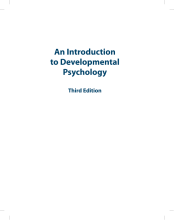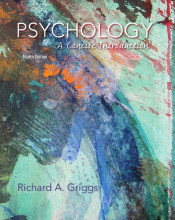Fall of behaviorism
25 important questions on Fall of behaviorism
In 1900 psychology was still struggling to gain the reputation of a "hard science" what was one of the reasons that this was the case?
- Psychology was still very vague;
- a lot of practices that we today do not consider science were part of psychology;
- mesmerism; aura powers and such
- phrenology; linking size of certain brain parts to characteristics
- spiritualism
- claims of these approaches didn't hold up so psychologists started to oppose these pseudosciences
What eventually caused people wanting to pull psychology to the side of the 'hard sciences'?
- People were tired of claims resulting from introspection not holding up in an experimental setting.
- at the same time positivism gained popularity, and the focus on objectivity grew.
How did einstein start a revolution in psychology?
- Einstein proved with his relativity theory that newton was wrong about time and space being absolute.
- this caused people to be shocked about how we can have been so wrong about something we were so certain of.
- bridgman then answers this question by stating that we could have been wrong because we don't attach measurements to our concepts causing them to remain quite abstract.
- Higher grades + faster learning
- Never study anything twice
- 100% sure, 100% understanding
What is operationalism by bridgman?
- The idea that concepts should be defined based on the operations that we use to measure these things
- the height of a table is defined as the number that a ruler marks when measuring it.
What were the immediate objections against operationalism?
- Length can be measured with multiple different procedures, so no unique definition of length
- you have as many lengths as you have ways to measure it
- – Operations therefor cannot be “synonymous” to concepts
How was operationalism received in psychology?
- Psychology was waiting for a way to make the science harder
- started using measurements for everything to get rid of the vague concepts in the science
- example; hunger = time since last meal.
- now hunger is not a subjective thing anymore
How did pavlov combine darwin's theory with operationalism?
- He invents the first learning model; classical conditioning
- Neutral stimulus (NS; tone) is linked to unconditioned stimulus (US; food) provoking an unconditioned response (UR; salivating)
- After a while, the NS becomes a conditioned stimulus (CS) and is followed by a conditioned response (CR; salivating).
- he created a learning theory for humans based on what he measured in animals.
How did thorndike combine darwin's theory with operationalism?
- Formulates the law of effect: behaviors followed by a reward are more likely to be repeated. Behaviors that are punished are less likely to be repeated
- this results in operant conditioning
- he formulated this law through experiments with cats in puzzle boxes.
How did the switch in psychology arise to go from introspections to behaviorism?
- Apparently behavioral science in biology doesn't need introspection...
- So why should that be necessary with people?
- Can't we just let psychology revolve around behavior?
How does behaviorism work?
- The behaviorist studies relationships between stimuli and behavior
- the black box is ignored in this theory
- usually done with small animals, but the knowledge gained is projected on humans
How does behaviorism bring back the tabula rasa?
- Since behaviorist saw human behavior simply as stimuli + outcome,
- it is said that knowledge is simply associations between stimuli and outcome in a certain environment
- if you put someone in another environment he will gain different knowledge,
- this view follows the idea of a blank slate
Despite from the idea of the tabula rasa by john locke, which other philosophers idea is resembled in behaviorism?
- The theory of david hume;
- you gain knowledge based on connections you make when experiencing things simultaneously, thats why you infer causality sometimes
- the dogs of pavlov thought at some point the bell caused food to appear.
How did skinner contribute to behaviorism?
- Skinner promoted radical behaviorism;
- total ban on the use of terms that refer to mental states; all human behavior can be understood as S-R relationships.
- What is not directly measurable has to be left out
- So: a psychology without dreams, expectations, thoughts, etc.
- Skinner didn't deny that these things exist; he just insisted that they didn't belong in science
How did skinner view the mind body problem and what it is to be human?
- "I" does not refer to a mind or to the brain, but to the person as a whole; an input- output mechanism. Behavior is the outcome consciousness is an illusion.
- So there's no body-mind problem
- No homunculus, not even in the brain!
- There is no essential difference between human and animal
Skinner at some point writes a book where he explains language in a behavioristic way, what is his theory?
- a child starts with imitation
- Through reinforcement and punishment by the parents the child learns to make increasingly complex sentences
- The end result is a very complex stimulus-response based range of "language behaviours".
- So a child who masters language is actually a sort of very well- conditioned pigeon
Chomsky responds to skinners verbal behavior, what are his counterarguments?
- He shows that skinners theory is much more vague than he pretends due to the new terms he tries to use
- he shows that he is unable to explain the complexity of language due to the fact that he denies internal states having a function in the proces
- he shows that he does not do justice to the learning process as we see it in children
Elaborate on chomsky's first argument against skinner; skinner is vague
- Skinner's theory is supposed to be more objective because the terms he uses (stimulus, response, endorsement) refer to observable things and behaviour.
- these terms can either be taken literally or metaphorically;
- when these terms are taken literally, like they are in animal experiments, they simply don't apply to human behavior
- if we take them as a metaphor; stretching the concept by stuffing all human behavior in a few concepts, the concept becomes vague again.
Describe how behaviorist terms don't apply to human behavior by the red chair example.
- According to behaviorism, a stimulus has a lawful relation with the response, meaning that the response can be explained by the stimulus
- but if you have a red chair as a stimulus, numerous responses are possible; red, chair, sit
- so where in an experimental setting with animals the response and stimulus is clear, the dog salivates when the bell rings, the lawful relation between stimulus and response seizes to exist when applied to humans.
How does chomsky show that skinners theory is vague by attacking the response strength?
- Response strength in an experimental setting would for example be the frequency and the power that the rat is pulling the lever.
- Taken literally in human verbal behavior; a strong response would be “wow wow wow wow wow!” but we don behave like this
- but, a silence followed by a soft “wow...” also count as a strong response,
- then the concept of response strength is vague again!
- you see taking the terms literally causes them not to apply, taking them metaphorically causes them to remain vague.
How does chomsky show that skinners theory is vague by attacking the reinforcement?
- Reinforcement should explain why someone gives a certain response
- To explain all responses, the concept reinforcement should be so vague that there is always some reinforcement
- also reinforcement is just a synonym for the vague terms we already have; ‘X is reinforced by Y’ is another way of saying ‘X wants Y’
- also in real life, reinforcements aren't clearly shown in real life like they are in the experimental setting
Elaborate on chomsky's argument that skinners theory can't cover the complexity of language use.
- In language a question, statement, command etc. Differ from each other in the intentions de speaker has.
- Skinner is limited to behavior, but language requires intentions
- For example, Skinner uses the listener's behavior to explain whether something is a question or a request or an order.
Elaborate on chomsky's argument that skinners theory doesn't do justice on how children learn language
- First of all; Parents are not precise enough in reinforcing and punishing to explain language acquisition; they aren't constantly punished for mistakes and they still learn
- Children don't do mimicry; mimic a word or two, but not whole sentences
- Children can construct and understand an infinite number of sentences, these can never come from mimicking these
- Children learn language spontaneously; if it were the case that children learn language the way skinner proposes, you would expect them to learn language rather gradually, this is niet the case. It goes really fast at some age
How does chomsky use the way grammar works as an argument against skinners theory, and how is it called?
- Language capability requires mastery of a grammar
- Grammar is generative (you can produce an infinite number of sentences and recognize them as correct, even if you've never seen them before)
- therefor; Grammar cannot be learned purely inductively with S-R associations
- So, grammar actually is a theory that cannot be derived from the data available to the child
- This later became known as the Poverty of the Stimulus argument
- Knowledge of grammar must therefore be innate
What are chomsky's views on nativism of language?
- the ability to acquire language is innate
- the ability to learn language is caused by the Language Acquisition Device (LAD)
- Chomsky explains the innate system by an evolutionary change in humans
- at some point through mutation the LAD was acquired and man started to have language of thought.
How did alan turing gave psychology a new turn?
- He created a machine that could perform anything that could be formed into calculations
- it was shown that logic can be formulated in a calculation,
- so it is shown that this machine could reason, like it could think
- this way the analogy was brought up that the brain is like a computer where the brain is the hardware, and the mind is a software.
- he refutes dualism, that was dominating until the 20th century
- The computer analogy offers a new possibility for psychology instead of behaviorism: humans as information processing systems
The question on the page originate from the summary of the following study material:
- A unique study and practice tool
- Never study anything twice again
- Get the grades you hope for
- 100% sure, 100% understanding
































